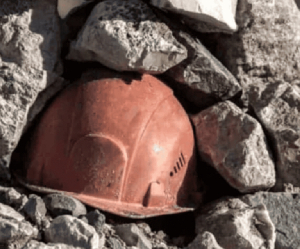The Obamas recently released an eye-opening film on Netflix called "Leave the World Behind." There's nothing particularly noteworthy about this film, except that it sparked thousands of TikTok conversations on its topic. For example, would America be prepared if outside forces removed its whole networked communications system, including the internet, radio, television, and banking communication systems, in order to create a hotbed for an internal coup?
In the film, a coup occurred as a result of a lack of communication, which generated distrust, theft, and killings, destabilizing the country internally. The film's idea was predicated on what would happen if foreign superpowers banded together and devised such a simple, inexpensive, yet lethal recipe to destroy the United States from within.
The recent African submarine cable situation has impacted both the East and West Coasts of Africa, resulting in slow and sometimes ineffective internet systems, limited use of ATMs, non-acceptance of electricity payments, and teller issues at shops and petrol stations that rely on fiber broadband to charge customers and print receipts.
To name a few of the problems that a single submarine cable might generate in such a short period.
One wonders if Ghana would be as prepared if more of our communication channels were disrupted (whether intentionally or unintentionally) in order to create that 'simple recipe' that would cause even the most stoic individuals to turn against one another, as seen in the film "Leave the World Behind."
The film is intriguing because it is rumored (but not confirmed) that Obama studied top security assessments every day, and the one that most terrified him was this example, the cheapest and simplest way to destabilize a powerful nation from within so smoothly.
This may sound like science fiction, but when more billionaires are building subterranean bunkers at an alarming rate and selling billions of dollars worth of stock in the previous year alone, one wonders what they know that others do not. Furthermore, if there is a 'plan', how will it affect African countries, and are we prepared to confront such a scenario?
In terms of Ghana's potential to survive this type of "textbook scenario" in which an outside power creates the right recipe for a coup, a closer examination of Ghana's National Security Strategy is required. The most recent one I could find online is from 2020 and may need to be revised in terms of our preparedness response to a potential complete communication crash as a worst-case scenario. It would have to go much deeper when discussing domestic-level threats, risks, and challenges, regional-level threats and risks, and global-level threats and risks to eventually encompass low-tech survival options.
In fact, pure guerilla warfare methods will keep a society together in the face of such a massive attack on our communication infrastructure. It would have to consider eventualities that go beyond what we are experiencing with a single underwater cable, such as scenarios in which our entire communication system is disabled, perhaps inciting internal conflict and disarray.
As our internet fully recovers in the following days, perhaps our leaders will consider drafting a guerilla warfare policy playbook in cases where national security is jeopardized by a complete strike on our national communication system.
Opinions of Sunday, 17 March 2024
Columnist: Amanda Clinton
Why is Ghana not prepared for a system crash?
Opinions














